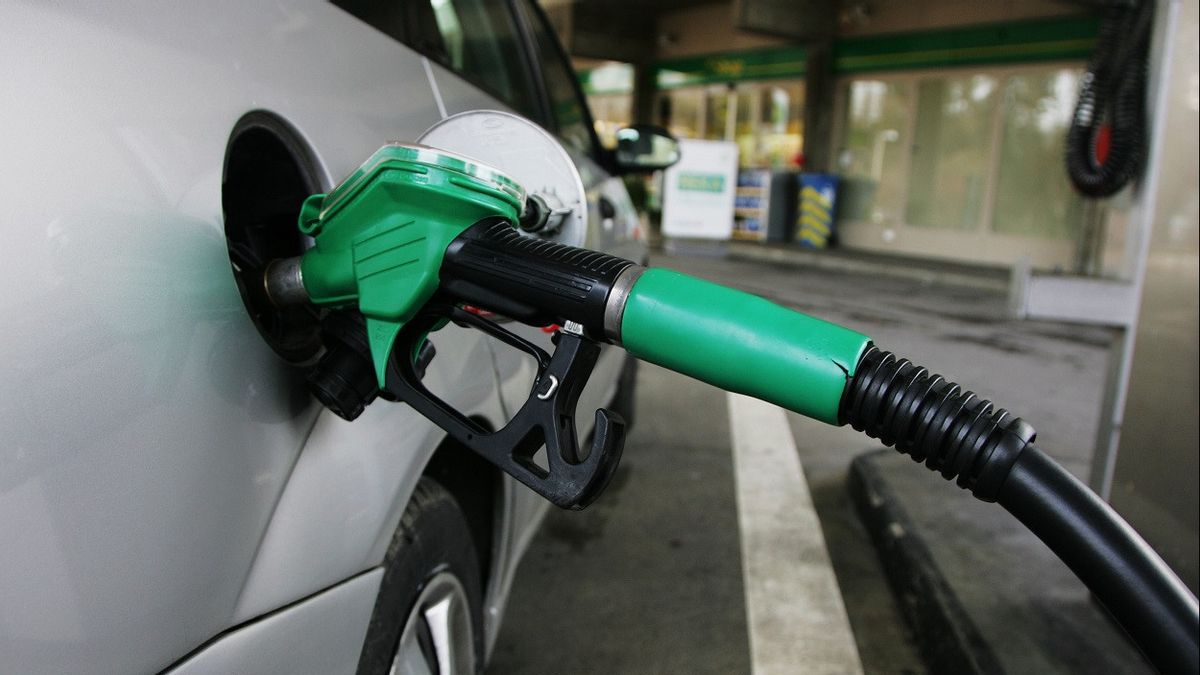JAKARTA - E10, a more environmentally friendly form of fuel, has just been introduced to gas stations across the UK. This blend of fossil fuels and biofuels has now been made the new standard for gasoline by the UK Department of Transportation.
Previously, the standard in the UK was E5, a fuel containing up to 5 percent ethanol, but this change will increase it to 10 percent. This brings the UK in line with the US, Australia and countries across Europe.
The UK government claims the increase could see the same impact on CO2 emissions as taking about 350,000 cars off the road, the equivalent of all cars in the North Yorkshire area.
It says it won't cost more than the previous petrol standard, but drivers can see a 1 percent impact on their fuel economy.
The introduction of this new blend of fuels is an interim measure for the UK, where plans are being made to ban the sale of new petrol and diesel cars by 2030, in order to achieve the decarbonization of transport.

"Despite increasing numbers of drivers turning to electricity, there are steps we can take today to reduce emissions from the millions of vehicles already on our roads," said UK Transport Secretary Grant Shapps, citing Euronews September 1.
"A small switch to E10 gasoline will reduce greenhouse gas emissions as we accelerate towards a greener transportation future."
So, made of the E10? To make E10 and other blended fuels, gasoline is mixed with ethanol. This alcohol can be produced from crops such as wheat or corn and is the most widely used form of biofuel in the world.
Just like making beer and wine, plants are fermented along with microorganisms that eat sugar and starch and turn them into alcohol. Proponents of the research also point to the potential of plants being used to capture CO2 and offset emissions.
However, there is some uncertainty as to whether emissions from burning these fuels can actually be offset by growing these crops, and some people object to the idea of using food to make fuel.
Although it can reduce the use of fossil fuels and CO2 emissions, E10 is considered not to solve air quality and public health problems.
In a country surrounded by oceans, there is another possible source to feed the evolution of British fuel, seaweed. The relatively slimy algae are naturally high in the sugars needed to make alcohol and can be easily fermented to make biofuels.
Growing seaweed does not require soil, fresh water or fertilizer so the potential environmental impact is minimal, says the Scottish Marine Science Association (SAMS) which is currently researching the possibility of using it as a green fuel source.

In Europe a number of countries have used E10 blends for years. The fuel was introduced to France in 2009, where it has proven to be a consistently popular choice for French motorists year after year, thanks to tax breaks.
Other countries that have adopted E10 include Germany, Belgium and Finland, driven by EU targets for renewable fuel sources.
Furthermore, Brazil is the world's largest user of biofuels and the second largest producer mixing its gasoline with up to 27 percent ethanol.
Meanwhile, the new Cars in the South American country have been fully fuel-flexible since 2003 meaning they can run on fuels made from anything up to 100 percent ethanol if needed.
Is E10 petrol good for my car? Most modern cars made after 2011 should be able to handle the 10 percent ethanol content introduced in the UK.
It has been the reference fuel used to test emissions and performance of all new cars since 2016. The UK government says around 95 per cent of petrol-powered vehicles currently on the road should be compatible and this figure is increasing all the time. If your car can't use this new fuel, then you can still access the E5 by buying unleaded super gasoline.
"While most vehicles will not be affected by the change, it is important for older car owners to use the government vehicle inspector to see if they can use the E10," said Edmund King, president of the British auto association, The AA.
If you're not sure if your car will run on new fuel, you can check directly on the government's website.
"Even if the E10 is loaded into a non-standard vehicle, drivers needn't panic and can put an unleaded super in their tank at the next available opportunity."
The English, Chinese, Japanese, Arabic, and French versions are automatically generated by the AI. So there may still be inaccuracies in translating, please always see Indonesian as our main language. (system supported by DigitalSiber.id)













